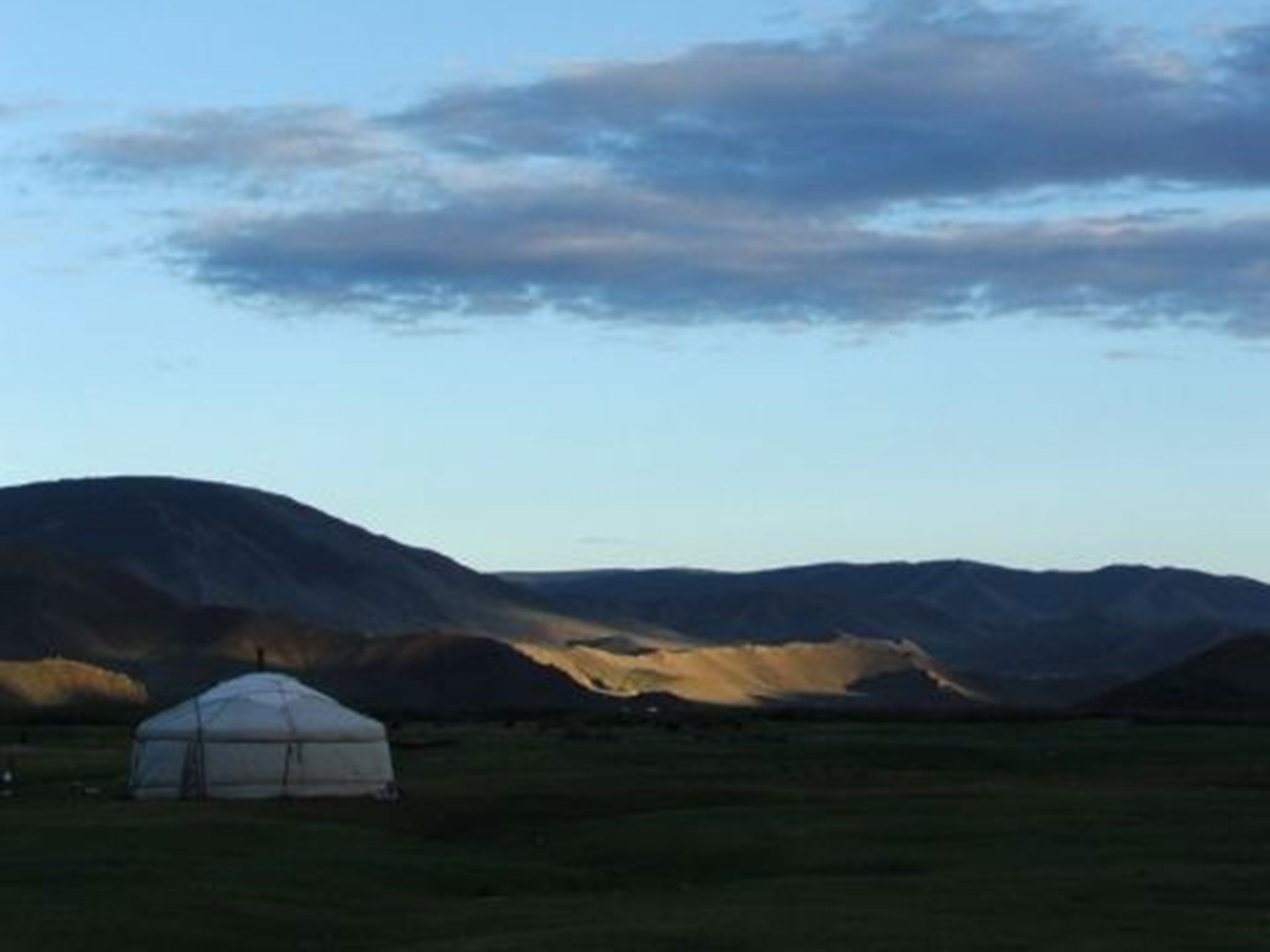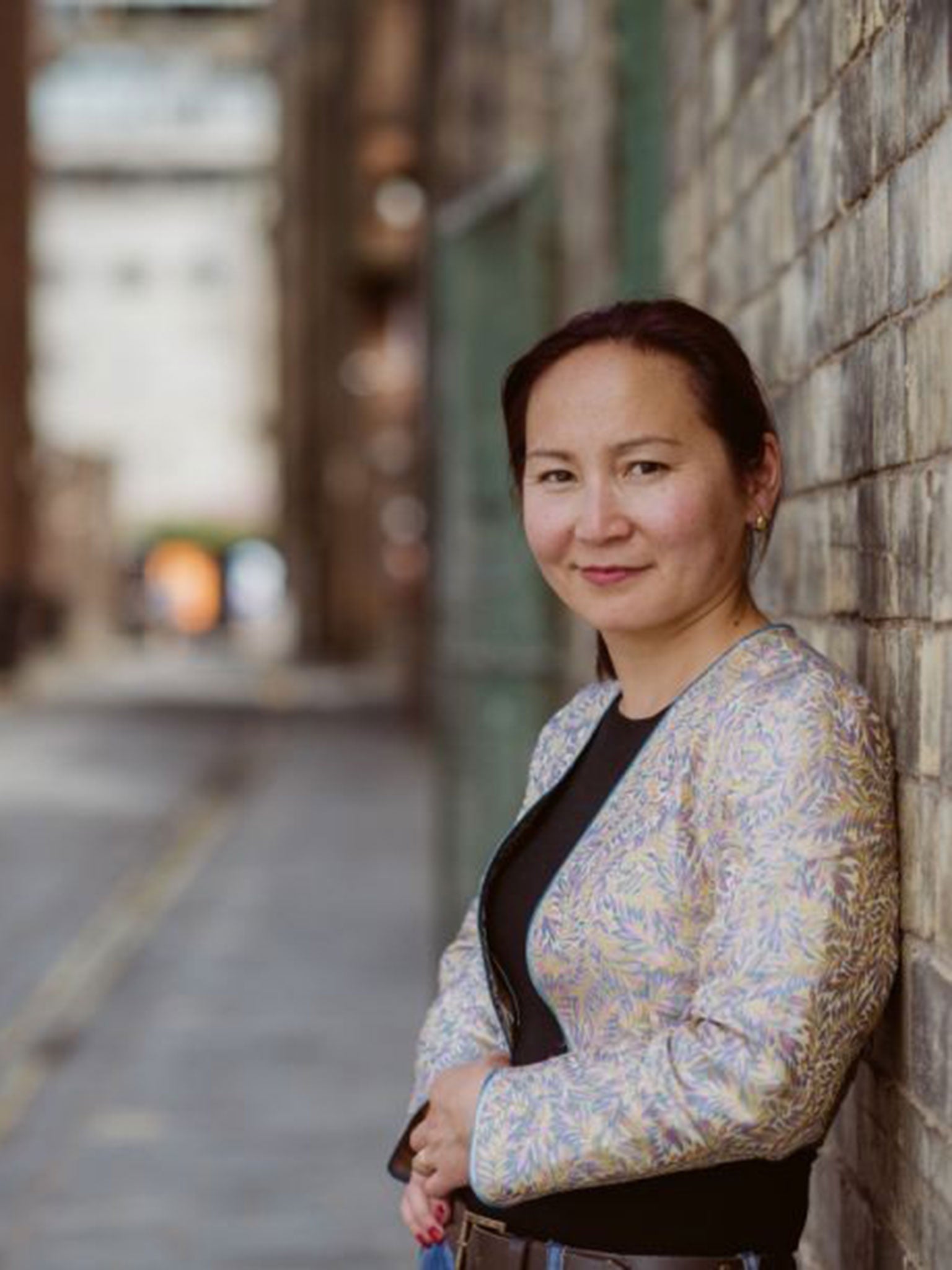Why are the words 'mongol', 'mongoloid' and 'mongy' still bandied about as insults?
Uuganaa Ramsay explores how the proud name of her people came to be used as an offensive term, and not just for those - like her son - with Down’s Syndrome

When Uuganaa Ramsay gave birth to her second son in a Scottish hospital four years ago, she was told that there was something not quite right. After a number of tests , she and her husband, Howard, were informed that their newborn, Billy, had an extra chromosome, and he was diagnosed with Down’s syndrome.
The couple were devastated. When they were finally able to go home, a doctor took Ramsay to one side. In a bid to comfort her, the Mongolian-born Ramsay was told that perhaps the Down’s syndrome would not be that noticeable to Billy’s appearance because of her ethnicity.
“It annoyed me,” says Ramsay, 37. “I was hurt. Even though I knew they meant to be helpful.” It was yet another in a long line of associations made by strangers between Ramsay’s native people, the Mongols, and a slang term for someone with a disability.
Mongol, mongoloid, mongy. All continue to be thrown around as insults, not just for those with Down’s syndrome, but for anyone with special needs, as well as being an offensive term for an idiot. But where did the association come from? And how has it affected the Mongols? In a search for answers, Ramsay has made a documentary, The Meaning of Mongol, which airs this evening on BBC Radio 4. After all, the label is not only in use in the UK. Ramsay points out that mongol is a derogatory word in more than 20 countries across every continent.
She was 19 when she first became aware of an alternative meaning for Mongol. While learning English, Ramsay would take her dictionary out with her when she was herding sheep and goats in Zavkhan, west Mongolia, where she grew up. Words fascinated her. One day, she looked up Mongol. As well as the primary meaning of it being the people of Mongolia, underneath there was a secondary usage. It was to do with disability, in particular Down’s syndrome.
“I remember that really vividly,” she recalls. “It felt strange that the word for my people also meant something else. I didn’t really understand. It made me feel uneasy; uncomfortable. I wanted to find out more, but I was a teenager and just left it.”

A few years later, Ramsay was studying to teach English as a foreign language in London. Two classmates from China and France approached her one day. “Oh, we didn’t realise someone from Mongolia can be so normal and clever like you,” they told her. She wasn’t sure what they meant and she laughed it off.
Then when she started working as a careers adviser in Scotland, she heard children throwing around the word mongol as an insult in the classroom and playground.
“I tried to find out why they were saying this, but my colleagues avoided explaining it to me,” she says. It was when she was reading up on Down’s syndrome after Billy’s diagnosis that Ramsay came across the link again.
Using mongol and mongoloid as a term for Down’s syndrome actually dates back to the 1860s, when a doctor called John Langdon Down published a paper, Observations on an Ethnic Classification of Idiots, in which he asserted that it was possible to classify different types of conditions by ethnic characteristics.
Before then, someone with Down’s syndrome was simply classified as an idiot. In Ramsay’s documentary, Down’s biographer, Professor Connor Ward, explains how Down was a distinguished medic and was recruited by the Royal Earlswood Asylum for Idiots to work with those who had learning disabilities.
Down noticed that those in a group of people he was treating shared a common appearance and it was then that he came up with his diagnosis of Mongolian Idiocy.
In his 1866 paper, Down wrote: “The great Mongolian family has numerous representatives [among his patients] and it is to this division that I wish in this paper to pay special attention. A very large number of congenital idiots are typical Mongols. So marked is this that when placed side-by-side it is difficult to believe that the specimens compared are not children of the same parents.”
Elsewhere, he writes about the roundness of the cheeks, the shape of the eyes and various other physical features and suggests that this group of children were a regression to a Mongolian ethnic type. There are no records which suggest that anyone of the Mongolian race was ever treated at Earlswood.
Later, Down doubted his work. He abandoned his belief in phrenology after 10 years of study and turned his back on the view that a person’s character and intelligence could be deduced from the outer appearance and shape of his or her head.
Yet the coining of his term continued.
Down’s contemporaries were also sceptical of his theories and started to use the term “so-called Mongolian idiot” in medical papers. For the next hundred years, mongol was used to describe someone with Down’s syndrome.
It was only in 1959 after the French geneticist Jérôme Lejeune discovered the cause of Down’s syndrome (an extra copy of chromosome 21) that medics began to suggest using a different term to mongoloid and mongol. Esteemed geneticists of the day (including Down’s own grandson) wrote a joint letter to The Lancet, the world’s leading medical journal, insisting that the term was derogatory to Eastern races and requested a new name for the condition.
Mongolia itself also called for a revisal. After becoming a member of the United Nations in 1961, it joined the World Health Organisation in 1965 and asked for the term mongoloid to be changed. From then on, the disorder became known as Down’s syndrome.
Mongol and mongoloid remained in use in British hospitals until the 1980s. In the documentary, the author and filmmaker Sarah Boston recalls giving birth in 1975 and the doctor handing over her baby with the words, “Your child is a mongol.” When she wrote a book about her experience of raising a child with Down’s syndrome, the publishers wanted to use the word mongol in the title. It was 1991.
And yet, mongoloid remains in our vernacular as a term of abuse and as an insult to the disabled. Ricky Gervais came under fire when he retweeted a “gag” in 2011: “Two mongs don’t make a right.” He refused to apologise and even added a skit about mongs to his stand-up routine. Eventually, after much public pressure, he backed down and admitted that he had been wrong to use the term.
For Ramsay, it was difficult to live in a country where the name for her native people was also an offensive slang term. She became involved with a survey conducted by Down’s syndrome Scotland, which found that the use of the word was still prevalent among teenagers. “It made me feel uncomfortable and upset,” she says. “It was derogatory. If you’re introducing yourself as a Mongol, people hear it differently. That has a big impact on self-confidence because people laugh. It’s not the same word any more.”
In an attempt to escape these feelings and recapture the sense of pride that Ramsay used to have in being a Mongol, she returned to her home town for the first time in eight years in September. Her visit is captured in the documentary and provides a spirited portrayal of the Mongolian people. It was important for Ramsay to present a true depiction of her countrymen and women to try to tackle any pre-existing negative notions of the Mongols.
“All Mongolians are freedom-loving people because of our innocent nomadic tradition of roaming freely and living with nature so harmoniously,” says Oyungerel Tsedevdamba, the Mongolian minister for culture, sports and tourism, in the documentary.
The country’s varied landscape includes rolling plateaus, sand dunes, alpine forests and glaciers and is evoked in the documentary through a series of dispatches. Ramsay visits family and friends, drinks vodka and makes dung-fuelled fires. She tells listeners that people bring dairy products as gifts when visiting one another’s houses because the white represents purity and innocence.
“It’s just like anywhere else – there are happy people and grumpy people,” observes Ramsay. “But the sky is always blue and sunny and I think that makes people a bit happier. Then at night, you can see the most stars there.”
Ramsay’s son Billy lived until he was only three months old. In one emotional scene in the documentary, she shows photos of her son to her family in Zavkhan.
“When someone passes away in Mongolia, they say he becomes a god,” she tells us.
Most Mongolian people are unaware about the wider use of mongol around the globe. “But in Mongolia we don’t face that issue as everyone is a Mongol here,” Tsedevdamba points out.
Now, Ramsay wants to put an end to the slang use of mongol. And, for her, that means reclaiming its original meaning with pride.
“I don’t want the word to be banned, but I want people to know you use Mongol in the same way as you would refer to a Scot, a Turk, a Pole,” she says in the documentary.
“We can unlearn negative connotations because we learnt them. You can call me Mongol, because I am.”
The Meaning of Mongol is on BBC Radio 4 at 8pm on Monday night.
Bookmark popover
Removed from bookmarks